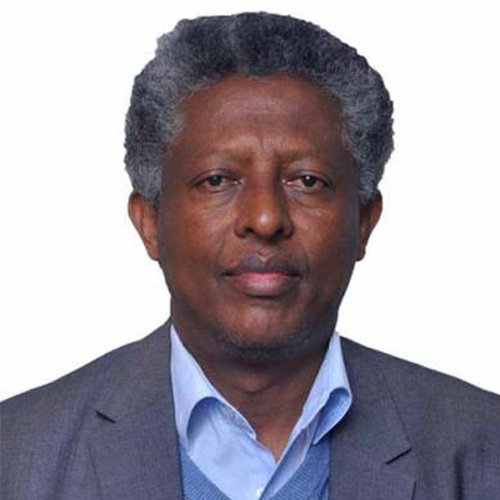
Abraham Aseffa
Country (Nationality)
Ethiopia
Grantee Title
Tuberculosis Genetics Network in Africa (TBGENAfrica)
Grantee Description
Dr Abraham Aseffa is the Deputy Director General at Armauer Hansen Research Institute (AHRI) in Ethiopia. He graduated in Medicine from Addis Ababa University (1984) and studied Microbiology at the University of Leipzig, Germany in 1990. He taught microbiology at Gondar College in Ethiopia until 1998 when he joined the WHO Immunology Research and Training Centre at the University of Lausanne, Switzerland for postdoctoral research. He moved to AHRI in Addis Ababa as senior scientist in 2001. Dr Aseffa has conducted several studies on infectious diseases in collaboration with national and international partners and co-authored over 250 publications. He has keen interest in postgraduate student training and has also been active in strengthening national and regional partnerships, particularly in clinical trial capacity building and health research ethics. He has served in several TDR, the Special Programme for Research and Training in Tropical Diseases, WHO and European & Developing Countries Clinical Trials Partnership advisory bodies. He is a member of the Ethiopian Academy of Sciences and the Third World Academy of Sciences (TWAS).
TBGENAfrica
Although tuberculosis is common and infectious, only 10% of infected individuals become sick. Understanding why this is the case could help develop better vaccines and drugs against TB. Recent analysis of the genetic make-up of the bacteria that cause TB suggests that TB first appeared when humans were evolving in Africa. It then accompanied them as they dispersed around the world. We think that during this time particular variants of the bacteria became adapted to particular human populations. Meanwhile, humans over many generations adapted to become more resistant to the TB bacteria and stay well. Thus, we think that to get TB disease you need the right combination of human and TB genetic make-ups. We will investigate this theory by collecting genetic material (DNA) from people with TB and from the bacteria that are infecting them. We will analyse them together to try to detect patterns of variation in humans that correlate with patterns of variation in bacteria. This could help identify new targets for vaccines and TB drugs. In parallel, we will build research capacity in cutting-edge science and carry out educational activities related to ethical issues associated with genome science in the African communities where we will work.
